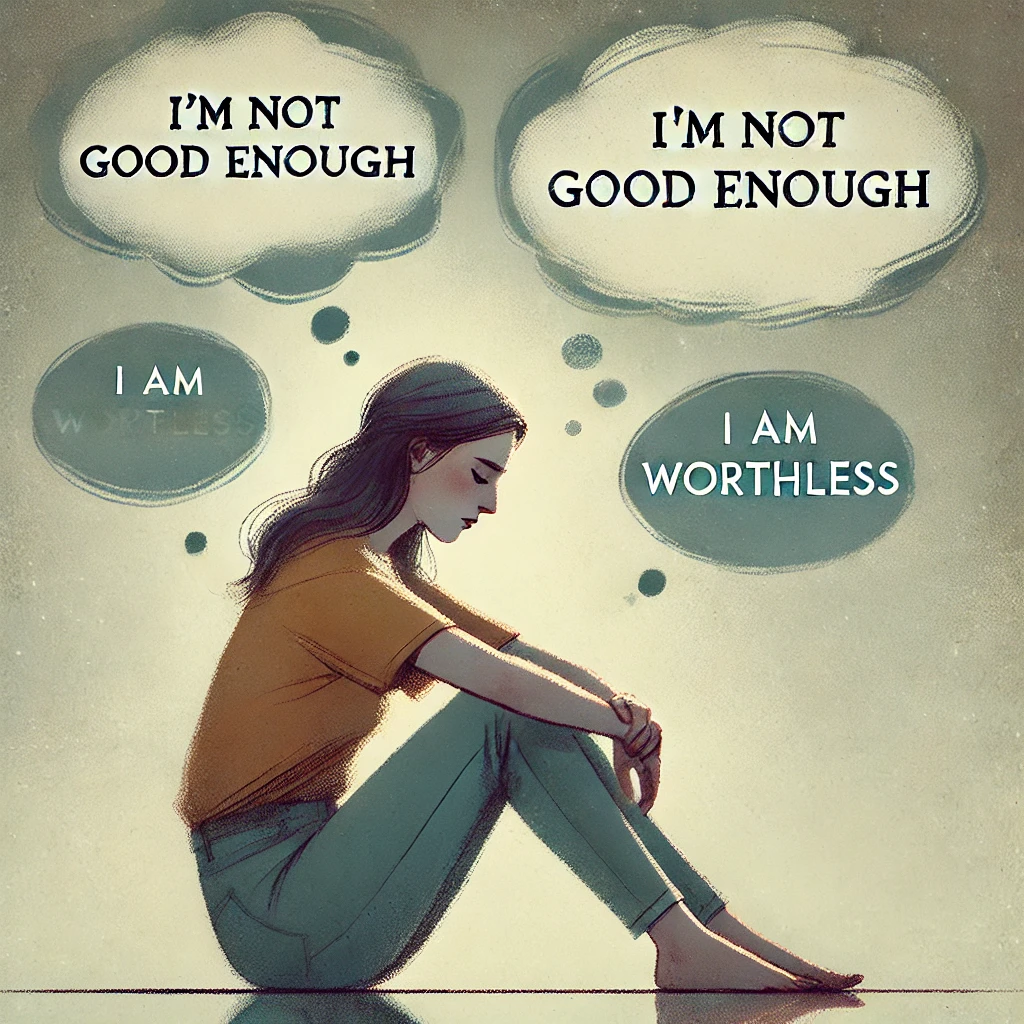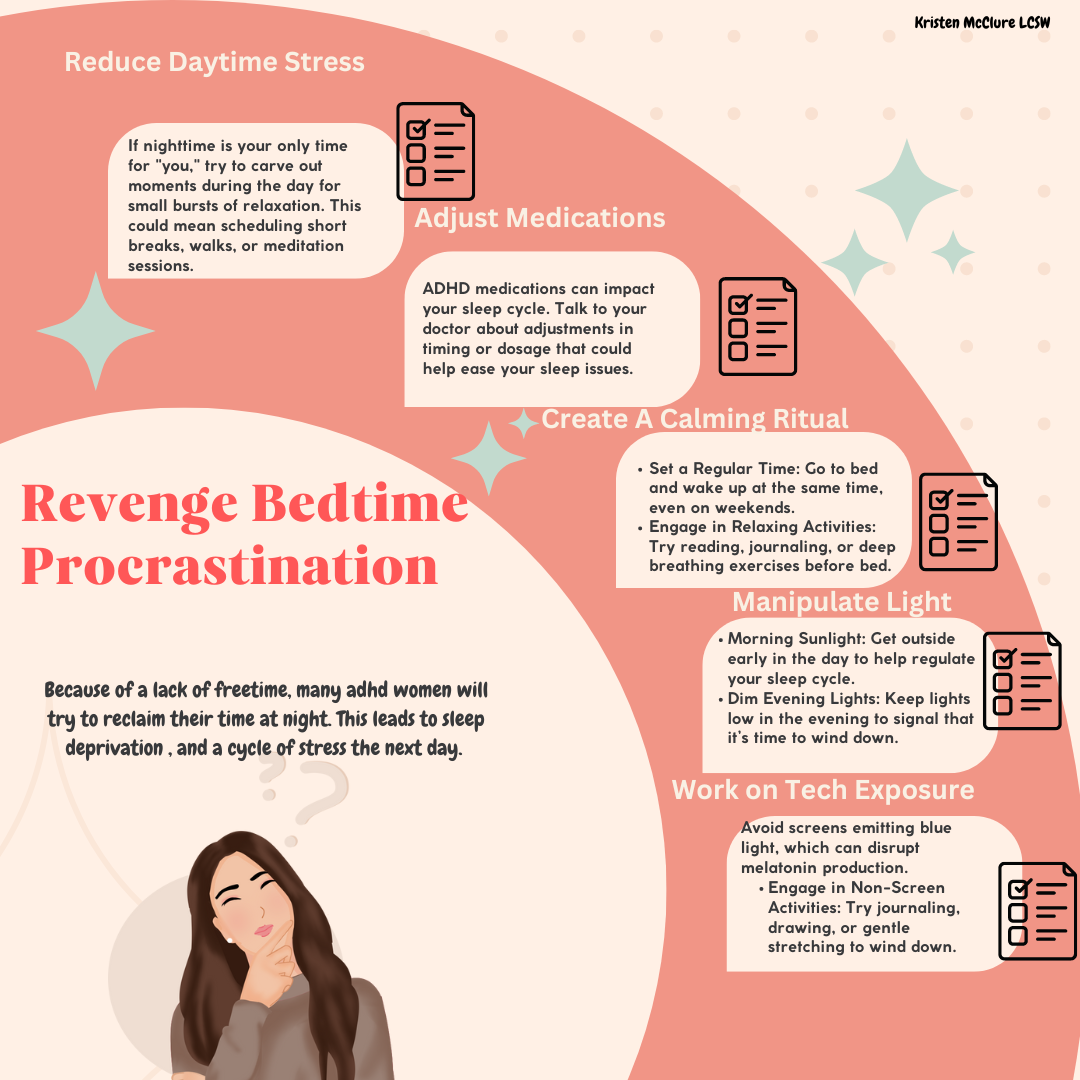
Practical Self-Compassion Strategies for ADHD Women
Table of Contents
ToggleADHD, or Attention Deficit Hyperactivity Disorder, can significantly impact women's mental health, often leading to feelings of inadequacy, frustration, and low self-esteem. However, incorporating self-compassion into daily life can transform these negative experiences into opportunities for growth and self-acceptance. This guide explores the profound benefits of self-compassion for women with ADHD and offers practical strategies to integrate it into everyday routines.
ADHD Women Need Self-Compassion
Women with ADHD often judge themselves harshly and find forgiving their mistakes hard. Practicing self-compassion can help break this negative pattern. Being kind to ourselves allows us to accept our flaws and mistakes and develop a greater capacity for self-forgiveness. Self-compassion can also reduce feelings of shame and inadequacy that often affect ADHD women. Learning how to be self-compassionate can enhance every aspect of your life.Practical Self-Compassion Strategies for ADHD Women
Here are several effective strategies to help you practice self-compassion in your daily life:1. Mindfulness Meditation and Awareness Exercises
What to Do: Start with a simple mindfulness exercise like focusing on your breath for five minutes a day. When self-critical thoughts arise, notice them without judgment, and gently return your focus to your breathing. Why It Helps: Mindfulness helps you become aware of self-critical thoughts without getting caught up in them. By observing these thoughts without reacting, you create distance from them, which reduces their power and impact over time.2. Journaling to Challenge the Inner Critic
What to Do: Use a journaling format designed to help manage self-criticism. For example, write about a recent situation where you felt critical of yourself. Identify the self-critical thought, then challenge it by considering a more balanced perspective. Finally, end by writing down three things you appreciate about yourself or your efforts. Why It Helps: Journaling helps you externalize your self-critical thoughts and take a more objective look at them. It gives you space to practice being kinder to yourself, especially during difficult moments.3. Self-Compassionate Dialogue
What to Do: Practice talking to yourself as you would to a loved one. Offer yourself encouraging and understanding words, especially when you feel frustrated or make a mistake. Why It Helps: ADHD women often internalize self-critical voices, but speaking to yourself with kindness and compassion helps shift the internal dialogue to one that’s more supportive and constructive.4. Loving-Kindness Meditation (LKM)
What to Do: Practice loving-kindness meditation by repeating phrases like “May I be happy, may I live with ease.” Start by directing these feelings toward yourself, then extend them to others. Why It Helps: Loving-kindness meditation cultivates feelings of empathy and compassion, starting with yourself. It helps soften the harshness of self-criticism and creates a sense of inner peace.5. Cognitive Behavioral Techniques for Immediate Reframing
What to Do: When a self-critical thought arises, ask yourself questions like: “Is this thought true? Is it helpful?” Challenge the thought with counter-evidence and reframe it with a kinder perspective. Why It Helps: This technique helps you interrupt automatic negative thoughts and replace them with more compassionate, balanced thinking.6. Affirmations for Self-Compassion
What to Do: Create a set of daily affirmations that directly counter your most common self-critical thoughts. Repeat them each morning and whenever you catch yourself being self-critical. Why It Helps: Regularly practicing affirmations can help retrain your brain to focus on your strengths rather than your perceived flaws, promoting self-compassion over time.7. Behavioral Activation with Compassionate Planning
What to Do: Plan small, achievable tasks each day that align with your values and strengths. After completing each task, take a moment to appreciate your effort rather than focusing on what didn’t go perfectly. Why It Helps: This strategy helps shift focus from perfectionism and self-criticism to self-appreciation and progress, fostering a sense of accomplishment and reducing feelings of inadequacy.Start Practicing Self-Compassion Today
Incorporating self-compassion into daily routines can be transformative for ADHD women. By practicing mindfulness, journaling, and compassionate self-talk, you can break free from patterns of self-criticism and develop a kinder relationship with yourself. These small, intentional steps toward self-compassion can lead to a greater sense of well-being and resilience in every aspect of your life.Conclusion: Practicing self-compassion isn’t about being indulgent—it’s about supporting yourself through difficult times with kindness and understanding, so you can move forward and thrive.







